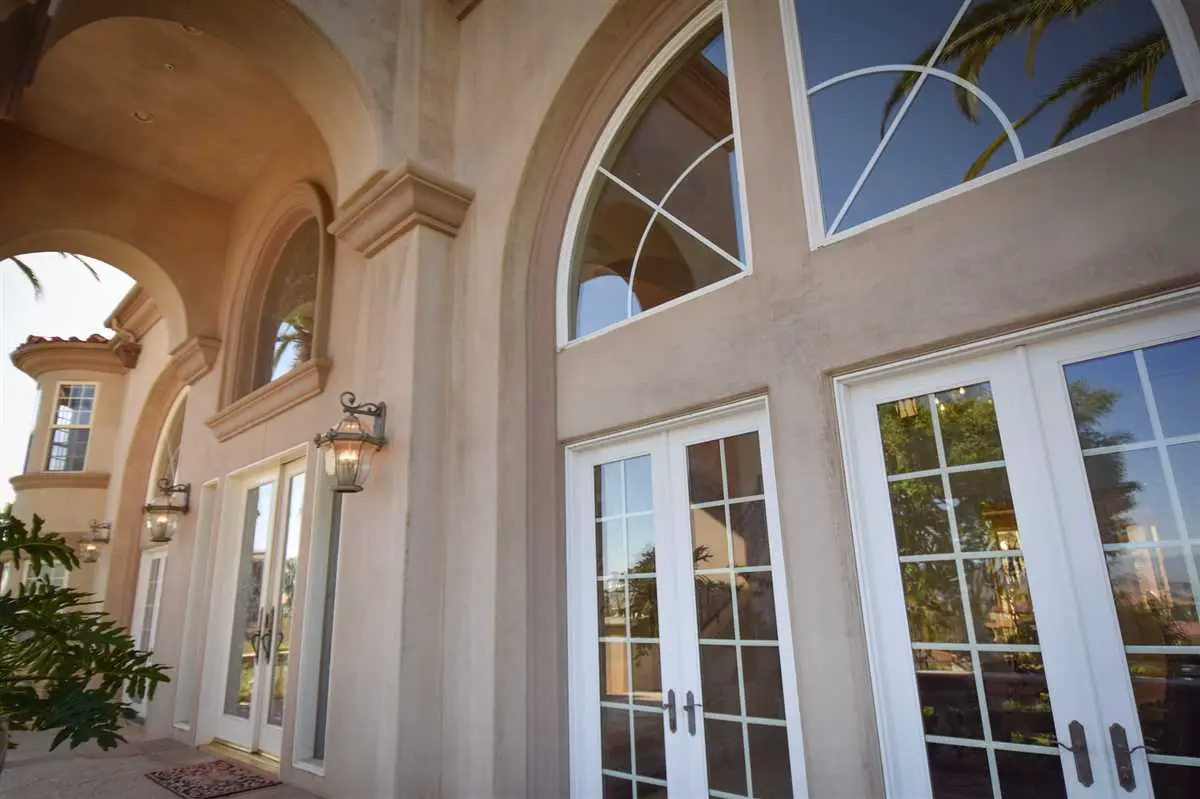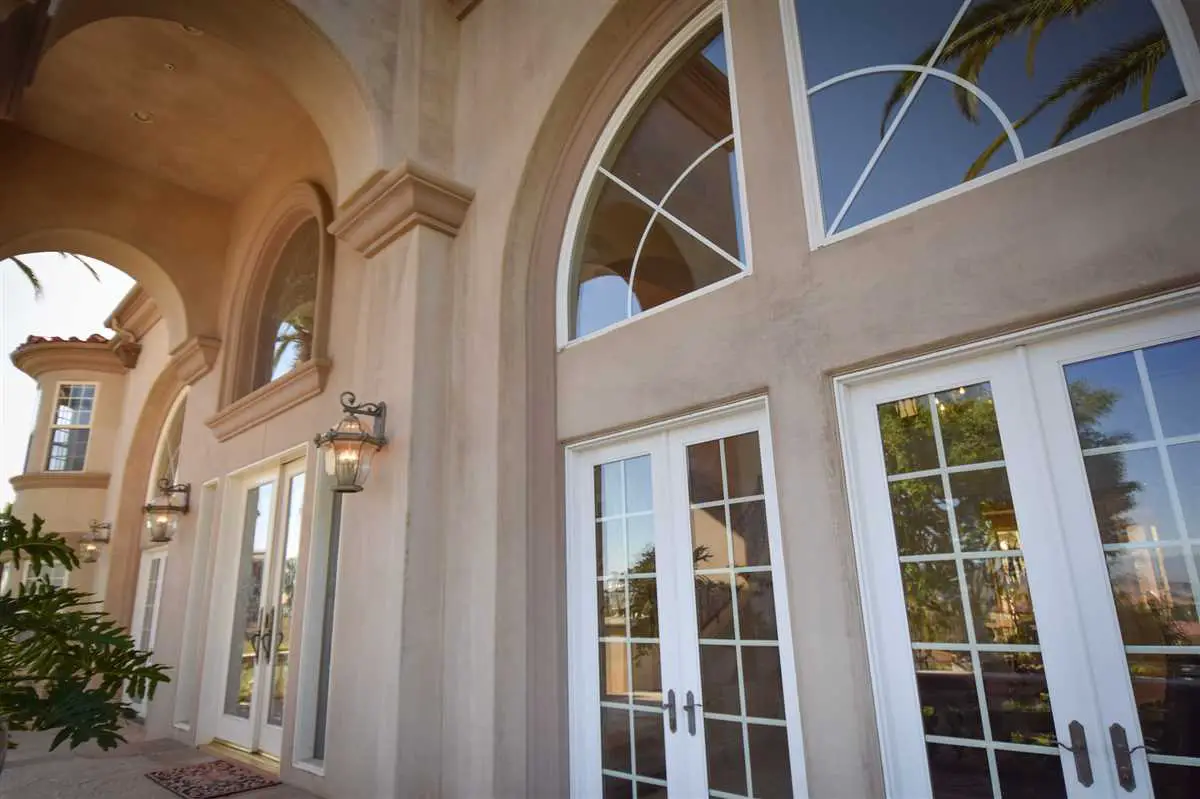Last Updated on February 22, 2024 by Vadym

Tinting house windows is a popular trend that offers various benefits, from enhancing privacy to reducing energy consumption. Many homeowners are eager to tint their windows, as it can improve the aesthetic appeal of their homes and provide additional comfort. However, before embarking on such a project, it is essential to understand the legal implications of tinting house windows in your area.
In many jurisdictions, the legality of tinting house windows is regulated by laws and regulations. The permissible level of window tinting can vary depending on factors such as the location of the house, the type of windows, and the purpose of window tinting. It is crucial to familiarize yourself with these regulations to avoid any potential penalties or consequences.
One of the primary concerns when it comes to tinting house windows is the impact it may have on visibility from the outside. Excessive tinting can hinder the view of the house, making it difficult for emergency services or authorities to assess the situation during an emergency. Consequently, many jurisdictions have specific regulations regarding the level of tinting allowed on house windows to ensure safety and security.
Another aspect to consider is the impact of window tinting on energy efficiency. Tinted windows can significantly reduce the amount of UV rays and heat entering your home, which can lower your energy bills. However, excessive tinting may also reduce the natural light coming into your house, leading to an increased reliance on artificial lighting. Therefore, some jurisdictions have regulations in place to strike a balance between energy efficiency and maintaining adequate natural light.
Before tinting your house windows, it is advisable to consult local authorities or professionals familiar with the relevant laws and regulations. They can provide you with accurate information and guidance on the permissible levels of window tinting in your area. By adhering to these regulations, you can enjoy the benefits of tinted windows while remaining compliant with the law.
In conclusion, tinting house windows can be a valuable addition to your home, providing privacy, energy efficiency, and aesthetic appeal. However, it is crucial to understand and comply with the legal requirements surrounding window tinting in your jurisdiction. By doing so, you can enjoy the benefits of tinted windows without running into any legal issues.
Tinting House Windows
Tinting house windows is a popular method for reducing glare, increasing privacy, and protecting furniture from fading caused by harmful UV rays. The process involves applying a thin film of tint to the glass, which can be customized to various shades and levels of darkness.
While tinting house windows is generally legal, there are certain regulations and restrictions that vary by location. It’s important to familiarize yourself with the laws in your area to avoid any potential fines or penalties.
Some municipalities have specific guidelines regarding the maximum allowable tint darkness for residential windows. This is often measured by a percentage known as Visible Light Transmission (VLT). VLT refers to the amount of light that can pass through the tinted glass, and lower percentages indicate darker tints. It is typically recommended to stay within the legal limits to ensure compliance.
Additionally, some areas may prohibit the use of certain types of tints that significantly alter the appearance of the windows. These restrictions are intended to maintain the aesthetic of the neighborhood and prevent any potential safety issues, such as obstructing the view from the roadway.
It is advisable to consult with a professional window tinting service to ensure that you comply with all applicable regulations. They can provide guidance on the best tint options for your home while considering any local restrictions.
In conclusion, tinting house windows can be a beneficial addition to any home, providing increased privacy and protection from the sun’s harmful rays. However, it is essential to research and adhere to the specific regulations governing window tinting in your area to avoid any legal issues.
Understanding Tinting Regulations
When it comes to tinting house windows, it is important to understand the regulations that govern this practice. Tinting regulations can vary from state to state, and it is crucial to comply with these regulations to avoid any legal issues.
One aspect to consider is the maximum allowable percentage of window tint that is allowed on residential windows. Different states may have different limits, and it is important to check the specific regulations for your area. The percentage refers to the amount of visible light that can pass through the tinted windows, with a lower percentage indicating a darker tint.
Another important factor to consider is the type of tinting that is allowed. Some states may have restrictions on certain types of tinting, such as reflective or mirrored films. It is important to familiarize yourself with the specific regulations in your area to ensure that you are using a type of tinting that is allowed.
Additionally, it is important to consider the regulations regarding the placement of tinted film on windows. Some states may have restrictions on certain windows, such as front windshields or windows near intersections, that prohibit the use of tinted films. It is crucial to check the regulations regarding the specific placement of tinted film on windows to comply with the law.
Violating tinting regulations can result in fines and penalties, and it is important to avoid such legal issues by understanding and following the regulations. It is recommended to consult local authorities or a professional tinting service to ensure that you are in compliance with the regulations in your area.
In conclusion, understanding tinting regulations is crucial when considering tinting house windows. By familiarizing yourself with the maximum allowable percentage of window tint, the type of tinting allowed, and the regulations regarding the placement of tinted film, you can ensure that you comply with the law and avoid any legal issues.
The Legal Limit for Tinted House Windows

When it comes to tinting house windows, it’s important to be aware of the legal limit to avoid any potential fines or penalties. The legal limit for tinted house windows varies depending on the country or state regulations. In most cases, the limit is determined by the Visible Light Transmission (VLT) percentage, which refers to the amount of visible light that can pass through the window.
In the United States, for example, the legal limit for tinted house windows is often set at 20% VLT for the front windows and windshield, and 35% VLT for the rear windows. This means that at least 20% or 35% of visible light should be able to pass through the windows.
It’s important to note that these limits may vary from state to state, so it’s crucial to check the specific regulations in your area before tinting your house windows. Additionally, some states may have additional restrictions, such as prohibiting certain types of reflective or mirrored tints.
Tinting house windows beyond the legal limit can result in consequences, including fines, penalties, or even having to remove the tint entirely. It’s also worth mentioning that illegal tinting can affect the visibility from inside the house and may cause safety concerns, especially during nighttime or in low-light conditions.
To ensure compliance with the legal limit for tinted house windows, it’s recommended to consult with a professional tinting service that is familiar with the regulations in your area. They can provide guidance on the appropriate tinting options that meet the legal requirements while still providing the desired level of privacy and sun protection.
Overall, understanding and adhering to the legal limit for tinted house windows is essential to avoid any legal issues and to ensure the safety and visibility of the occupants inside the house.
Benefits of Tinted House Windows
Tinted house windows have become increasingly popular among homeowners, and for good reason. Here are some of the key benefits of opting for tinted windows for your home:
- Privacy: One of the main advantages of tinted house windows is the increased privacy they provide. Tinted windows make it more difficult for people to see inside your home, allowing you to enjoy your privacy without having to constantly worry about prying eyes.
- Heat Reduction: Tinted windows also help to reduce the amount of heat that enters your home. The additional layer of tint acts as a barrier against the sun’s rays, preventing your home from becoming uncomfortably hot on sunny days. This can ultimately lead to energy savings by reducing the need for excessive air conditioning.
- UV Protection: Another significant benefit of tinted house windows is their ability to block harmful ultraviolet (UV) rays. These rays are known to cause skin damage and fade furniture, flooring, and other interior items over time. With tinted windows, you can protect yourself and your belongings from the harmful effects of UV radiation.
- Glare Reduction: Tinted windows can also help reduce glare inside your home. Whether it’s sunlight reflecting off a shiny surface or the headlights of passing cars at night, glare can be a real nuisance. Tinted windows act as a filter and minimize the amount of light and glare that enters your home, making it more comfortable and easier to see.
- Enhanced Security: Tinted house windows can act as an extra layer of security for your home. The tinted film makes it more difficult for potential intruders to see inside, making your home less of a target for burglaries. The added protection and peace of mind that tinted windows offer cannot be overstated.
- Improved Aesthetics: Last but not least, tinted windows can greatly enhance the appearance of your home. They add a touch of elegance and sophistication to any property, improving curb appeal and making your house stand out among the rest. With a variety of tint shades and colors to choose from, you can easily find a style that complements your home’s exterior.
Overall, tinted house windows offer numerous benefits, including increased privacy, heat reduction, UV protection, glare reduction, enhanced security, and improved aesthetics. Consider tinting your home’s windows to enjoy these advantages and create a more comfortable and visually appealing living environment.
How to Choose the Right Tint for Your House Windows
When it comes to tinting house windows, there are several factors to consider in order to choose the right tint. Here are some tips to help you make an informed decision:
1. Consider your needs: Determine why you want window tinting. Is it for privacy, reducing glare, or improving energy efficiency? Understanding your specific needs will help you choose the right tint.
2. Check local regulations: Before selecting a tint, make sure to check your local laws and regulations regarding window tinting. Some areas have restrictions on the level of tint allowed, especially for front windows.
3. Understand the different tint options: Window tints come in various shades and thicknesses. Some tints are designed specifically for heat reduction, while others are meant for privacy. Research and compare different options to find the one that best suits your requirements.
4. Consider the aesthetic appeal: Window tinting can enhance the appearance of your house. Think about the overall look you want to achieve and choose a tint that complements your home’s style and architecture.
5. Consult a professional: If you’re unsure about which tint to choose, it’s always a good idea to seek advice from a professional window tinting service. They can guide you based on their expertise and provide recommendations tailored to your needs.
6. Ask for samples: Before committing to a specific tint, ask for samples to see how it looks when applied to your windows. This will give you a better idea of how the tint will affect the natural light and visibility from inside and outside your house.
7. Consider the warranty: Check if the tint comes with a warranty. A reliable manufacturer or installer will offer a warranty, which can give you peace of mind knowing that you’re protected against any defects or issues.
8. Look for energy-efficient tints: If reducing heat or improving energy efficiency is a priority, opt for tints that have a high solar heat gain coefficient (SHGC) rating. These tints can block a significant amount of heat from entering your house, thus reducing the need for excessive air conditioning.
9. Get multiple quotes: Before settling on a specific tinting service, it’s advisable to get quotes from multiple providers. This will help you compare prices, services offered, and ensure you’re getting the best value for your money.
By considering these factors and doing thorough research, you can choose the right tint for your house windows that meets your specific needs and enhances both the functionality and appearance of your home.
Common Misconceptions about Tinted House Windows
When it comes to tinting house windows, there are several misconceptions that often confuse homeowners and lead to misunderstandings. In this article, we aim to address and debunk some of the most common of these misconceptions.
|
Misconception: |
Tinted windows are always illegal. |
|
Truth: |
Tinted windows are not always illegal. The legality of tinted house windows depends on various factors such as the type of tint used and the regulations implemented in your specific location. It is crucial to familiarize yourself with the local laws before tinting your windows to ensure compliance. |
|
Misconception: |
Tinting house windows can block all UV rays. |
|
Truth: |
While tinted windows can indeed reduce the amount of UV rays that enter the house, they cannot block all UV rays entirely. Different types of window tint have varying degrees of UV protection, but it is essential to remember that no tint can completely eliminate UV exposure. It is still necessary to use additional measures such as sunscreen or window treatments to ensure proper protection. |
|
Misconception: |
Tinted windows always improve energy efficiency. |
|
Truth: |
Tinted windows can enhance energy efficiency by reducing heat transfer and improving insulation. However, the level of energy efficiency achieved through window tinting depends on various factors, including the quality of the tint and the existing insulation of the house. It is crucial to consider other energy-saving methods and consult with professionals to maximize the benefits of tinted windows. |
|
Misconception: |
Tinting house windows always leads to excessive darkness. |
|
Truth: |
While some window tints can result in a darker appearance, many options provide varying levels of tinting that allow for both privacy and natural light. It is essential to choose the right level of tint that suits your preferences and requirements. Consulting with professionals can help you find the right balance between natural light and privacy. |
By addressing these common misconceptions, we hope to provide homeowners with a better understanding of tinted house windows and encourage informed decisions regarding their installation and usage.

